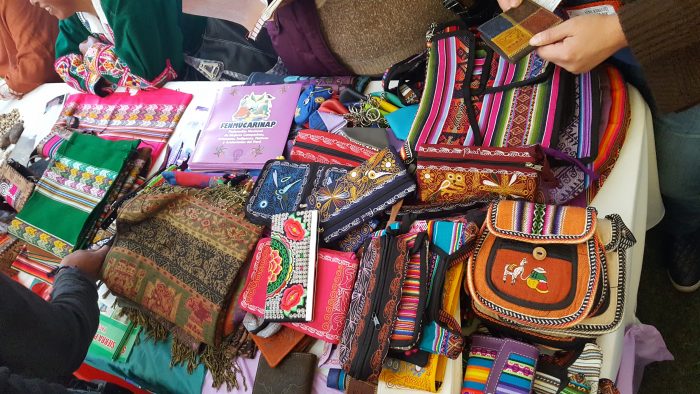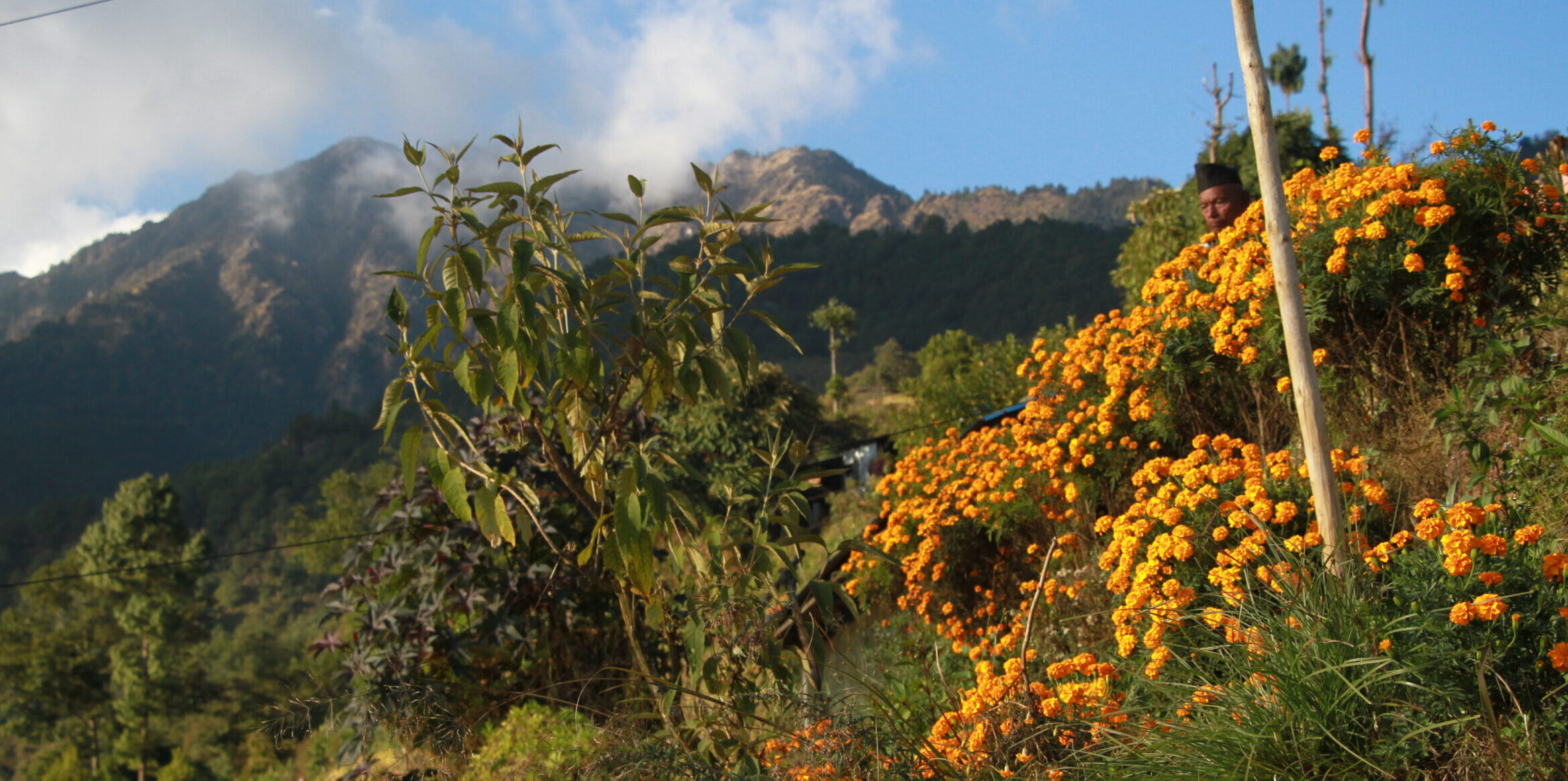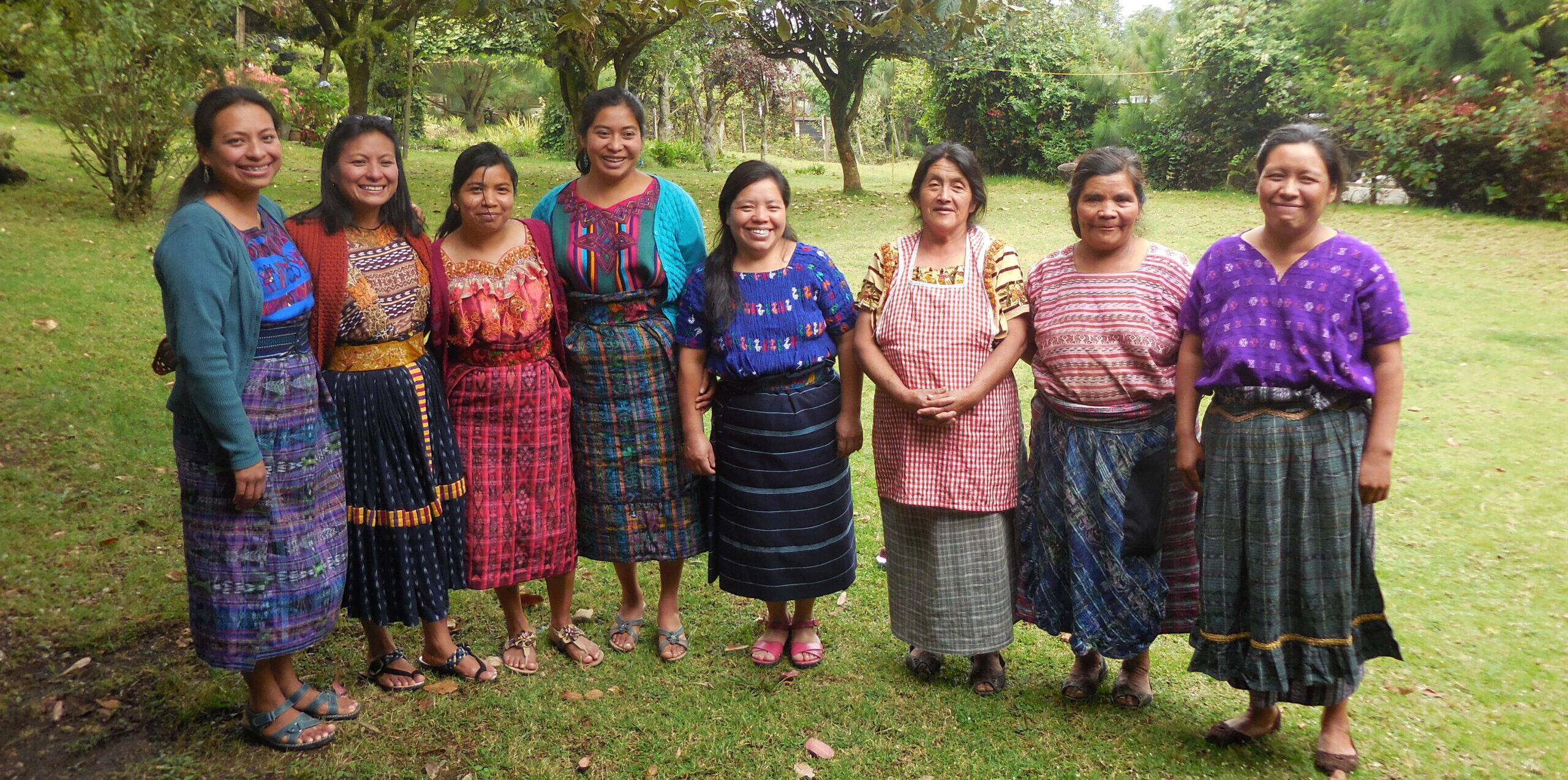Decolonizing the conference

This blog is the last of a 5-part series on the “Lekil Kuxlejal-Ich’el Ta Muk” (or, “Buen Vivir with Respect”) Learning Exchange, which took place last year among 120+ participants, including 18 Thousand Currents partners from 11 countries. It was hosted by our long-term partner DESMI in Chiapas, Mexico. Read more from this series here.
Over a period of five days, a diverse group representing a multitude of languages, beliefs, histories, and contexts weaved an inclusive community that integrated each participant as expert and student. Through the wise, intentional guidance of our senior partner Desarrollo Económico y Social de los Mexicanos Indígenas, which held the logistics and facilitation responsibilities for the exchange, participants created a space that challenged and decolonized western ideals of speech, expertise, analysis, and productivity in convenings. Here are some of the ways how they achieved that.
1. The sacred is invited
Each morning, we began the learning exchange with a mística, a ceremony used by movements in Latin America to ground and express their work through spiritual, artistic, and cultural traditions. On the first day, DESMI demonstrated a mística by offering a ceremony drawn from indigenous Mayan spiritual practices. Each day after that, participants from Africa, Asia, and Latin America offered místicas rooted in their traditions, such as Theatre of the Oppressed; Hinduism; and liberation theology. The místicas, which took anywhere from 30 to 90 minutes, were the consistent thread that held the learning exchange together.
The místicas set the intention for each day by focusing our collective energies and allowing us to unfold into our whole selves- heart, mind, and spirit. They reminded us that while we tackle complex, interdependent injustices and strategies through analysis, rigor, and science, each one of us is a sacred being connected to the wholeness of all life and all beings past, present, and future. In sharing different aspects of our cultural practices, participants engaged in cross-cultural education, and ensured the whole that was being created at the learning exchange reflected the diversity of its parts. With each mística, we reclaimed our cultures, spiritual traditions, histories, and identities as central to our struggles for self-determination.
2. Go with the experts
In a discussion about agriculture, who better an expert than farmers themselves? Unlike many global conferences, this learning exchange centered grassroots activists, advocates, and leaders as experts and learners. And it went one step further. It lifted ancestral practices as science and innovation with concrete solutions for the challenges we face today. All too often, the international development and philanthropy sectors hold conferences in different parts of the world without meaningful integration of the people in the local community hosting the conference. In this case, DESMI ensured that farmers from different parts of Chiapas were invited and integrated. Participants brought their lived experiences and expertise as farmers- in addition to their organizing and activism backgrounds- to hold rich discussions.
Because everyone in the room was viewed as an expert, there were no VIPs and keynote speakers. All ideas and insights were given their due time and attention.There were no singular solutions and products. Rather, participants used their knowledges, resources, and tools such as coyunutras, misticas, popular education, and movement affirmations to hold complex , intersectional, and strategic conversations. Collectively, they created a ground-up composite of the world that showed the interconnectedness of forces of exploitation and oppression, the interdependence of the struggles to resist them, and the strategies and practices that are advancing people-centered transformation.
3. Walk the talk
During the learning exchange, we didn’t just talk about pathways to a more just world, we attempted to live them. Our discussions of agroecology and buen vivir included conversations about solidarity economy, movement building, and other ways in which we nurture collective wellbeing. DESMI intentionally cultivated the principle of collectivism throughout the learning exchange. For example, the exchange took place at CODIMUJ, a social justice collective with roots in liberation theology, which is currently run by women. We all shared rooms creating an opportunity for us to forge stronger bonds that are borne out of intimate and informal gatherings. Taking care of and hosting 120 people is a big undertaking and we all took our part sharing the responsibilities. Participants embraced tasks ranging from timekeeping to cleanliness. We rotated who served meals and we all washed dishes. The exchange ensured that we walked the talk in real and tangible ways. And where we failed, it created opportunities for dialogue and loving accountability.
4. Fun on the agenda
The learning exchange agenda was intentionally designed, combining analysis and practice, tradition and innovation, reflection and collaboration. Participants put in long hours and brought their whole selves to get the most out of an experience that has taken some thousands of miles away from their homes. But they also had fun. On the second night, through song, dance, and food, participants forged closer ties and connections. On the last day, we visited a historic canyon. Those of us in this sector often host conferences in places with rich history and context and leave no room for participants to connect to their host community or country. Through this field trip, we engaged in conversations about conservation, environmental degradation, corporate capture of water and power systems, and modalities of resistance around the world. Learning happens in formal and informal structures and the learning exchange integrated the informal and fun as core and not peripheral to the agenda. By doing so, it allowed participants to connect across many levels and layers, and to shed rigid ideas of learning and productivity.
5. Egos checked at the door
As part of the agenda, DESMI organized a visit to a Zapatista community. In the 1990s, the indigenous Zapatista movement reclaimed land in Chiapas, Mexico and now runs self-governed, autonomous regions. The site visit was intended to be an exchange between participants and the Zapatista agroecology managers about how they are building food sustainability. The day before our visit, however, the Zapatista governing body had informed DESMI that our visit would be limited to a tour, without those conversations. Adaptive and flexible, DESMI staff accepted the change graciously. They weren’t angry. They didn’t question the decision. They didn’t bad mouth them. DESMI has accompanied indigenous communities in Chiapas for three decades, and was one of the few organizations invited into Zapatista autonomous regions to work with and build the capacity of the revolution’s leaders on food sovereignty. They didn’t use that history or proximity as leverage to get their way. Instead, DESMI staff simply expressed that this is a self-determined community and that a visit is a privilege. The ways in which they managed the relationship was instructional on how one works with communities with respect, dignity, and love. Those of us committed to autonomy and self-determination must embody it through our daily practice, be it how we communicate with our partners, respond to changes in plans, or conduct partner visits, especially when we do not agree or understand their decisions or direction.
All in all, the Chiapas learning exchange was comprised of people committed to transformation. Therefore, the exchange was carefully and thoughtfully designed to reflect the type of transformation we seek for the world. Intentional design, planning, and strategy underpinned the structure and content of the agenda. Threads of love, humility, patience, curiosity, inquiry, and openness wove the community together. Among other factors, creating a convening where ancestral traditions find their rightful place in dialogue about the future; grassroots activists share their insights and solutions as experts; and pedagogical models rooted in global south traditions are centralized, the exchange decolonized the conference space.
Related Stories



